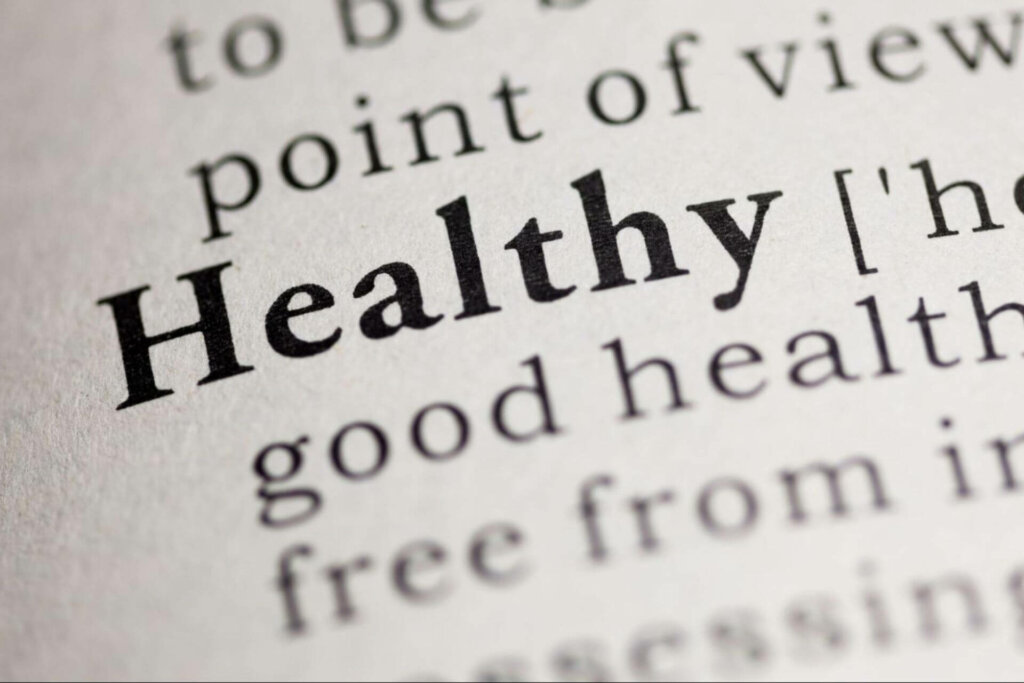What, exactly, does “healthy” mean?
The term “healthy” is used so often, by so many people, that it seems to have lost its meaning! Indeed, “healthy” tends to take on different roles for different people.
For example, for a mostly physical and mentally fit individual, to be healthy would be to stay in the same condition by continuing to eat well and engage in some physical activity each day. For someone sick with cancer, however, their definition of healthy would likely be to have a good day without symptoms, or to be able to return to normal activity, or even to survive.
These are very different views of health, but the word “healthy” is defined by the Merriam Webster dictionary as “free from disease, and not displaying clinical signs of disease or infection.” “Free from disease” can be very confusing, however, because even those people who are free from disease may not necessarily truly be healthy or living in a healthy way. For example, someone who has no disease and is at a normal weight may be considered healthy by the Merriam Webster definition, but if they are eating extremely processed or high fat foods for most of their diet while also not exercising, then healthy doesn’t seem to fit or accurately describe them!
The bottom line is that “healthy” means something different for everyone, and that we must look internally and externally to really determine whether we are truly healthy . . . . and whether we are really living a healthy lifestyle in order to maintain or improve our health..
Here are some questions that might help you determine what healthy looks like for you, and can help you incorporate more healthy activities and behaviors on a daily basis:
- Am I within a healthy weight range?
- What diseases am I at risk of developing?
- Do I have genetic risk factors for disease?
- Am I eating enough fruits and vegetables?
- Am I getting enough daily physical activity?
- Am I getting enough sleep?
- Am I taking the right supplements for my long-term health?
- Am I managing stress in a healthy way?
Because most of these questions are more general, you should consider discussing them – and others you may have – with your doctor or health care provider. They can then help you answer and address your questions in a more individualized way.
We suggest having the all important “healthy” discussion at the very top of your New Year’s resolution list. Your doctor, registered dietitian, or certified health coach can help you create a game plan on how to address these questions to improve your lifestyle and improve your long-term health, not only in 2023, but for your lifetime.

